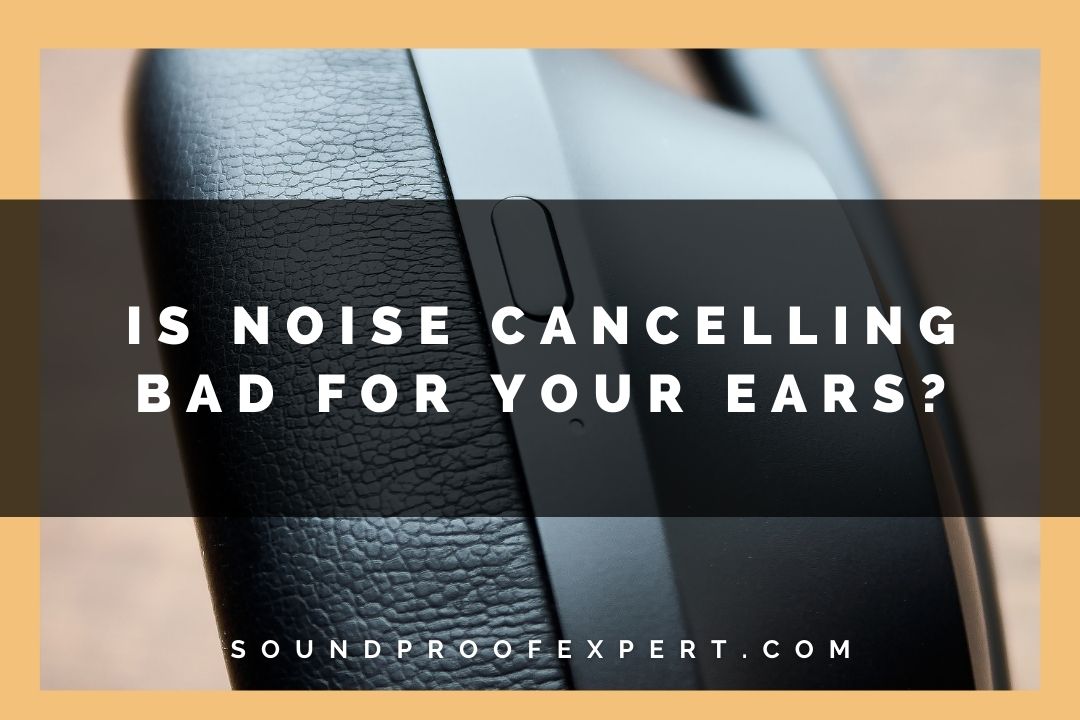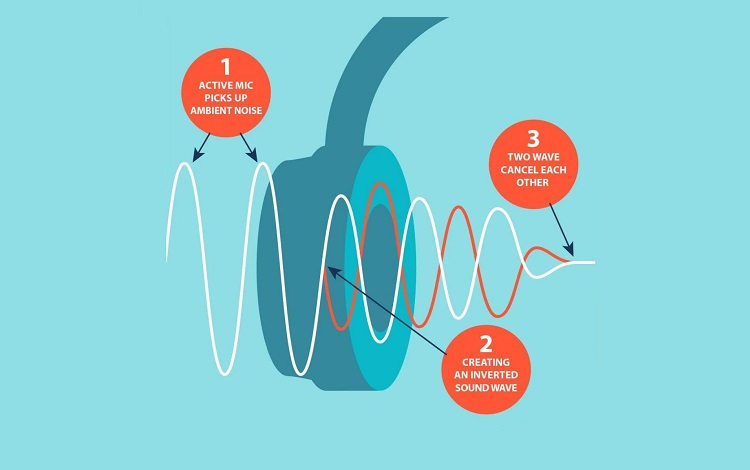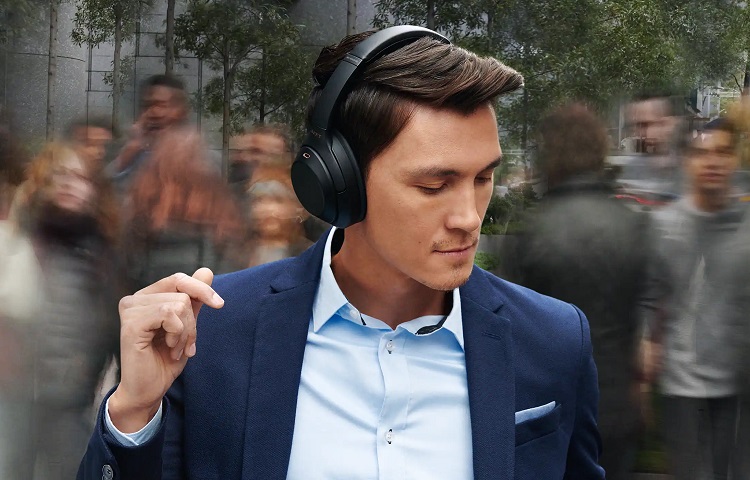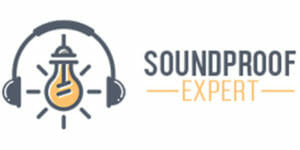
Noise-canceling headphones are all the hype nowadays. Far from being super-expensive audio accessories, they have become an everyday gadget among travelers, music enthusiasts, and professionals.
Of course, due to better competition, noise-canceling headphones have become cheaper. You can always spend $1000 on a pair of premium headphones, but you can find $100 ones as well.
But one question still confuses potential buyers: Is noise-canceling bad for your ears?
As a general rule, noise canceling headphones are not bad for your ears and will not cause hearing impairment.
We will get started with the basics and make our way up.
Noise-canceling Headphones: History

Do you know the place where people use noise-canceling headphones the most?
Well, airplanes. So, it does not surprise us when we track the origins of noise-canceling headphones in the aviation industry. The first pair of noise-canceling headphones were made for pilots so that they could communicate better.
The system wanted to get rid of ambient noise that used to affect their hearing.
By the late 1980s, Bose Corporation came up with the Series I Aviation Headset, which was made for use in airplanes. The headset provided a battery life of up to 8 hours and could be powered using a power socket in the flight.
Soon enough, Bose was supplying noise-canceling headsets to many airlines, which made these products available in business and first-class consumers.
Consumers had to wait until 2000 to see the launch of Bose’s Quiet Comfort for consumers. Since then, most companies have introduced noise-canceling headphone lineups.
Bose has remained strong in the game, along with Sony, Sennheiser, Beats, etc. In the past decade, these headphones have become more popular and affordable.
Companies like Apple and Sony have introduced noise-canceling technology to in-ear earphones as well. The Apple AirPods Pro and Sony WF-1000XM3 have been fan-favorites for some time.
We must also recognize the growing popularity of passive noise-canceling headphones, which is another story. In short, you can pick from a lot of options when you need a good pair of noise-canceling headphones.
How Do Noise-canceling Headphones Work?

You can find two types of noise-cancellation technologies used in headphones: passive noise canceling and active noise canceling.
Sometimes, headphones use a hybrid of both PNC and ANC. However, there are some inherent differences between both. Let us see how they work.
Passive Noise Canceling
Passive Noise Canceling is also often known as Noise Isolation. This technology prevents ambient noise from reaching your earcups.
To do it, passive noise-canceling headphones will create a tight-knit cover around the ears. Because the outside noise cannot get in, you do not have to turn up the volume to listen to music or a podcast.
Depending on the structure and quality of the noise-canceling earcups, these headphones can offer an impressive listening experience.
Active Noise-cancelling
Active noise-cancellation takes a more advanced approach with the help of electronic circuitry. The circuitry is supported by an array of microphone that picks up ambient noise.
The circuitry then analyzes the ambient noise and generates inverted noise, which will cancel the ambient noise. It works in real-time, and a listener can efficiently get rid of loud noises, including the engine noise from the airplane.
Similarly, if you live near a city, an active noise-canceling headphone will efficiently reduce the background noise.
Both passive and active noise-canceling headphones are popular among customers. Some even use them as a sleeping aid. Research has also shown that noise-canceling headphones can help children identified with an autism spectrum disorder.
Long story short, noise-canceling technology has done more than you think. It has been no less than a revolution in the audio industry.
How Could Noise-canceling Headphones Impact Your Health?

Now, we will answer the big question: is noise-canceling terrible for your ears?
NO. Noise-canceling headphones are not bad for your ears.
However, listening to loud music (or other media, for that matter) is not suitable for your hearing.
Research has proven that those who use headphones in maximum volume may have hearing problems after a while. But it would happen regardless of whether you have noise-canceling headphones with you.
The only inconvenience with noise-canceling headphones is that they create a static sound. This sound might cause dizziness in some users. However, it is a rare situation and does not cause hearing problems. Keeping this apart, we cannot find any way in which noise-canceling headphones may cause problems.
Noise-canceling headphones can improve your health by reducing the chances of hearing issues. Yes, you heard that right. Let us explain.
Several studies have shown that US citizens who live among too much ambient noise tend to have auditory issues. They also experience a high level of stress hormones, which lead to other serious problems.
In most cases, people who own regular earphones/headphones have only one option to beat ambient noise: turn up the volume. But, turning the volume up does not solve the issue.
Of course, the listener may temporarily get rid of ambient noise, but it comes at the cost of putting their eardrums under too much pressure. So, the regular pair of headphones do not make a difference in these cases.
On the other hand, noise-canceling headphones do an impressive job. Because they get rid of the ambient noise — by defending the earcups or with the help of circuitry —, the listener does not have to increase the volume to the maximum level.
Instead, they can listen to their favorite songs or podcasts without exposing the eardrums to too much volume. Some noise-canceling headphones even come with advanced features to control the ratio between the music and the ambient sounds. When used properly, these features help you wear noise-canceling headphones in almost every environment.
We must also add that noise-canceling headphones do not emit any radiation. The circuitry is used only for identifying and canceling the ambient noise. Therefore, you do not have to worry about any health issues when using a pair of noise-canceling headphones.
So, what is all the fuss about, you ask?
How Did the Myth of Ear Damage Start?

It must be clear to you that noise-canceling headphones causing ear damage is a myth.
Like many other tech myths, this one also has its roots in the lack of proper understanding.
There was a time when noise-canceling headphones were too good to be true. So, people thought the manufacturers are creating ear cups that are too rough on the body.
It is not entirely untrue. Some headphone manufacturers had used poor designs, causing ear pain and discomfort while using their headphones.
However, this was only a minor inconvenience that was fixed with the help of a comfortable design. Some people combined this idea to think that noise cancellation can make a pressure-tight space near the earcups. It could have been one of the sources for the myth.
There we had it: an unscientific idea that noise-canceling headphones could be bad for your ears.
Conclusion
Fortunately, we are at a point to understand things better and debunk these myths.
So, the next time you think of getting a pair of noise-canceling headphones, you do not have to worry about ear damage. Instead, make sure you get a product that fits well with your body.
For instance, the headphones must have ear cups that are large enough to cover your ears. Otherwise, you will feel discomfort, especially while listening to it for an extended period.
It would help if you also chose a pair of headphones with sufficient padding and sweat-resistant materials. If you keep these things in mind, these headphones can only improve your hearing health.
